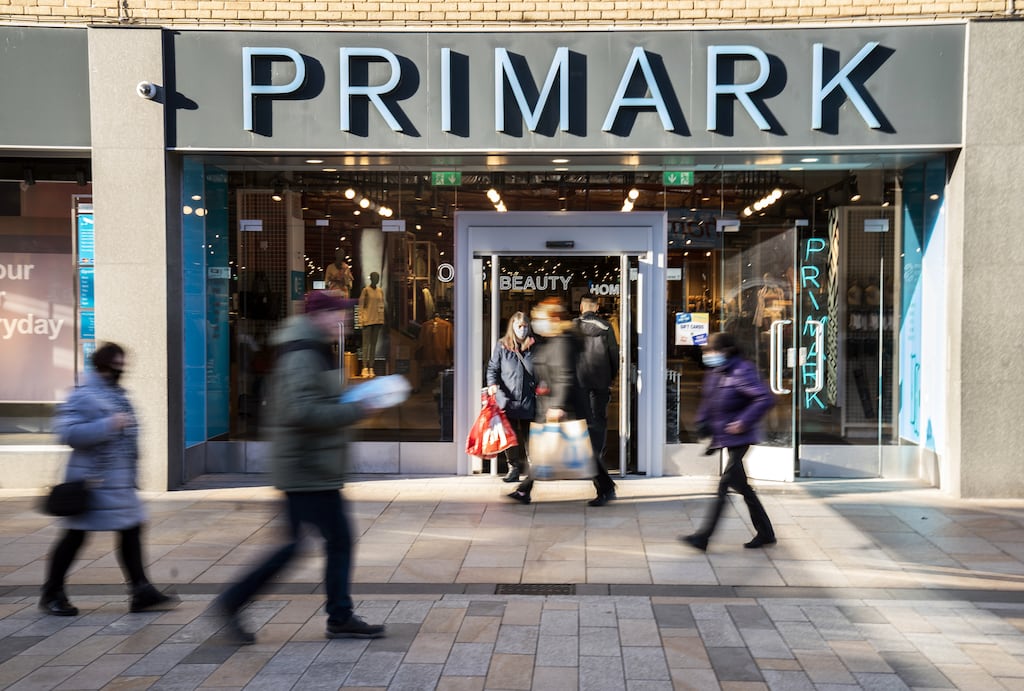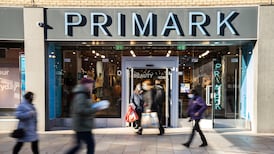This week, investors channelled their best version of Vogue Magazine supremo Anna Wintour, as Associated British Foods (ABF) paraded a plan to split its fast-fashion Primark unit – Penneys in Ireland – from its food business down the London City runway.
Far from the usual share price bump that listed conglomerates typically get by unveiling plans to spin off a business, ABF’s stock had fallen as much as 5 per cent a little over 24 hours after the announcement, as the market digested the landmark proposal. They ended the week lower, too.
[ Penneys owner ABF explores spinning off fashion chainOpens in new window ]
The initial critic reviews are in – and they’re not exactly gushing.
“[A] separation is unlikely to swing the valuation debate meaningfully as we struggle to see how the two individual component parts would individually command a higher [stock market valuation rating than] in their current shape,” concluded Jefferies analyst James Grinic in a note to clients.
READ MORE
Another front-row pundit, Deutsche Numis’s Adam Cochrane, concluded: “The lack of a significant share price reaction on the announcement suggests that there is not a material undervaluation of either business, at least in the short term.”
On the surface, ABF chief executive George Weston might understandably feel frustrated.
Haven’t investment banks been calling for years for Primark, which started off as a single store in 1969 in Dublin’s Mary Street by the late Arthur Ryan for the Canadian-Irish Weston family, to be spun off as a stand-alone business as it expanded at pace?
The logic was that the ragtag food businesses – which include Twinings tea, yeast, and other bakery ingredients, animal feed, and sugar – were holding back the overall valuation.
But rather than a demerger shining a spotlight on the powerhouse Primark has become, which now has 473 stores globally, Weston sees it as a chance for food – the hitherto Cinderella of the group – to finally step out from the shadows.
“Our unique and exceptional food business has historically been less well understood by the financial markets than Primark, yet it has a highly attractive portfolio, deep global expertise and much potential,” Weston said on Tuesday.
He has a point. Most of the questions Weston’s faced from the market in two decades at the helm have been from analysts that specialise in covering retail companies.
There’s one big snag with moving ahead with the plan right now. With the stock trading at a healthy 12.5 times next year’s earnings forecasts, the traditional “conglomerate discount” once attached to ABF’s shares had effectively already disappeared before the announcement.
Weston, whose wider family’s Wittington Investments vehicle plans to remain the majority owner of both businesses, still has good reasons to consider a split now. The plan is to come to a final decision by April.
A key one is governance. The board believes that Primark, now a large and complex business, may benefit from a more focused oversight model as an independent company.
First, Primark will need to find a full-time chief executive, after previous incumbent Paul Marchant resigned in March following an investigation into alleged inappropriate behaviour towards a woman. Irish man Eoin Tonge, who has held the fort as interim chief executive, is widely tipped as the credible internal candidate.
ABF also now has a market capitalisation of just over £16 billion (€18.2 billion). The two businesses are of sufficient scale that each would stand to remain in the key FTSE 100 index. That is important because the benchmark is tracked by a swathe of large funds.

Will Imagine’s big gamble double its customer base?
But the individual investment cases are cloudy and will require work before both businesses are sent off on their way.
Primark’s total sales only grew in its last financial year, to the middle of September – by 1 per cent to £9.49 billion – because of new store openings in the US and Europe. Stripping those out, like-for-like sales dipped 2.3 per cent.
The like-for-like performance improved somewhat in the second half of the year in the UK, helped by well-received marketing campaigns. But it was also driven by the final roll-out of its click-and-collect offering in that market. Primark has been way behind its peers on the ecommerce front. Extending click-and-collect elsewhere would be a start.
The wider group’s sales £19.4 billion of sales for the year missed consensus expectations by 1.1 per cent, even after ABF’s warning in September of “challenging” market conditions prompted analysts to revise down their estimates.
The food side has had its own issues.
“The problem has been that there are businesses within foods which are of less good quality in our opinion, such as agriculture, Australia grocery, UK bread, and Spanish Sugar, which seem to have tarred the entire non-Primark businesses,” according to Barclays analyst Warren Akerman.
While the group has finally taken action in some of these businesses – restructuring its Spanish sugar unit and closing a UK bioethanol plant within the wider sugar division – more steps may be needed to get investors excited about its stand-alone prospects.
The fundamental problem with the European sugar market is that there continues to be oversupply in the market, with too many players continuing to battle it out even as prices remain low – and are forecast to continue to decline in 2026.
The talk in the City is that Weston will likely remain in charge of the food division in the event of a demerger.
His aim is that the deal will thrust the food business into its rightful place in the spotlight.
But it could also expose it to the kind of scrutiny – and awkward questions on strategy – it escaped while overshadowed by Primark.
















